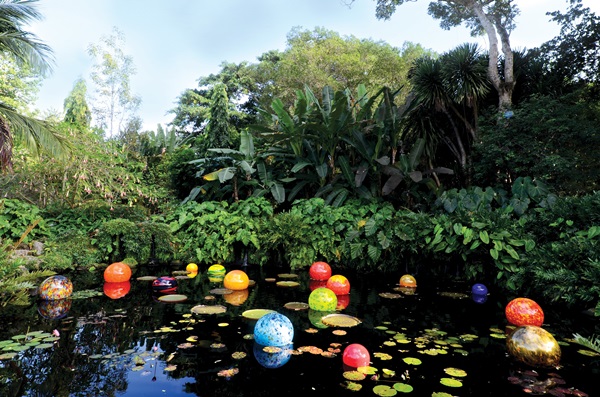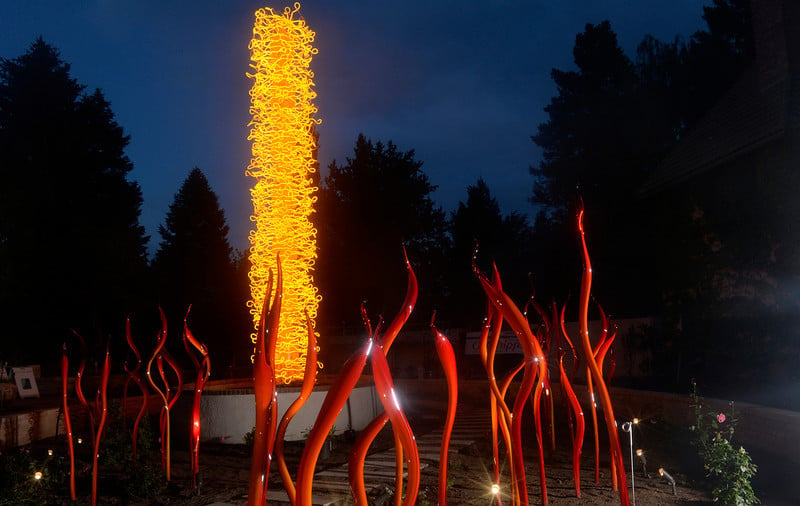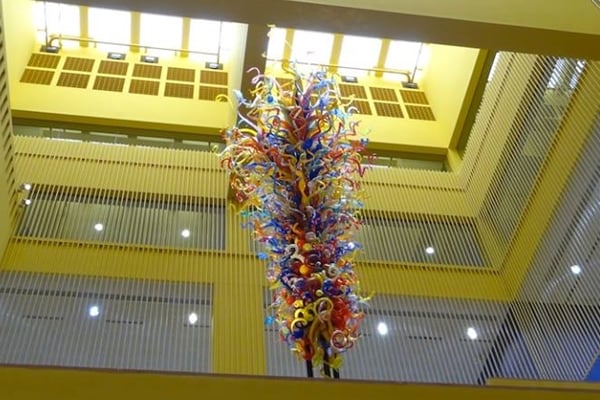Law & Politics
Dale Chihuly Robbed of $3 Million in Art by Drug-Addicted Employee
Addicted to pain killers, Kaul sold the works for a dime on the dollar.

Addicted to pain killers, Kaul sold the works for a dime on the dollar.

Sarah Cascone


Dale Chihuly, The Saffron Tower & Cattails ( 2014). Photo: Cyrus McCrimmon, courtesy the Denver Post.
One of Dale Chihuly‘s former employees has been accused of stealing $3 million worth of art by the artist, known for his colorful glass sculptures, in order to buy drugs.
Christopher Robert Kaul, 38, worked for Chihuly between March 2010 and June 2013, and allegedly spent the last year of his employment making off with some 90 artworks he thought would not be missed. (See Pioneer Glassblower Dale Chihuly Brings New Work and Monumental Favorites to Marlborough Gallery.)
“We’ve seen this story many times before—an employee becomes hooked on drugs and steals from the boss or the company,” Pierce County prosecutor Mark Lindquist said in a statement. “The twist here is his boss is a world-famous Tacoma artist.”

Dale Chihuly, Niijima Floats (2014).
Photo: Fairchild Tropical Botanical Garden.
This is not the first time Chihuly’s blown-glass baubles have been the victim of theft. In a particularly amusing, spur-of-the-moment heist that took place this past year, four friends drunkenly scaled the walls of the Denver Botanic Gardens. They stole four sculptures worth $100,000, which they stashed in a cornfield before being arrested and charged in January (see Dale Chihuly Artwork Thieves in Custody).
Given his long employment at Chihuly’s warehouse, Kaul had the opportunity to carefully plan his theft, taking advantage of what FBI investigators have since described as “horrible” organization and “lax” inventory control.
Addicted to pain killers, Kaul reportedly sold the stolen sculptures to three different art dealers for a fraction of their full cost, claiming to have purchased the works using an employee discount. “He sold the art for a dime on the dollar,” Lindquist noted. “He received tens of thousands of dollars for millions of dollars of art.”

A Dale Chihuly glass sculpture.
Photo: Benjamin Sutton.
The warehouse eventually fired Kaul because of his drug addiction, but his theft remained unnoticed until this past September, when one of Kaul’s unwitting buyers asked Chihuly’s company for authentication. Soon, it became clear that the works were authentic, but that they were missing from the warehouse. An internal audit revealed the extent of the theft.
Since the crime came to light, dealers have reportedly returned roughly half the stolen artwork. Kaul, who has confessed to the FBI according to court records, has been charged with first degree theft and trafficking in stolen property, and will appear in court June 15.
A spokesperson for the Chihuly Studio declined to comment in a statement, saying only that they were “cooperating fully with the Pierce County Prosecutor’s Office.”
“If you own a company, you need to check on your inventory,” Lindquist added. “Number two, if someone tries to sell you a piece of art that’s worth several hundred thousand for a couple hundred bucks, there’s something wrong. If it’s too good to be true, it probably is.”